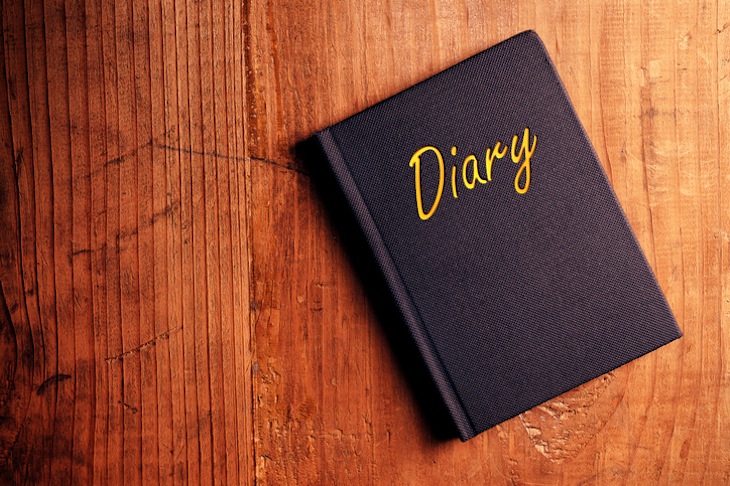The bestselling humourist and New Yorker essayist David Sedaris is renowned for an almost hypnotic deadpan drollery and maybe especially for The Santaland Diaries, his uproarious account of earning part-time cash as a department store Christmas elf. Now he is bringing out an edited version of his personal diaries.
It’s the first volume of two, taking us from his days as a broke student, stoner and young gay man in North Carolina and Chicago, through to the years of literary fame and success in New York and Paris as the new century dawns — a distinction worn lightly. Fans, semi-fans and non-fans (I am midway between the first two categories) may well crack open this book in search of David Sedaris’s private reality. How far along the spectrum of weirdness is he really? Is it an act that he drops in the diary confessional? Will it be like seeing Grayson Perry in men’s clothing?
No. The prose here is absolutely the same as in his other work: cool, very funny, sardonic, yet open, with a kind of surface innocence and ingenuousness, but also a weird sort of unlocatability of tone. Where is he coming from? Sedaris’s style is very different from that other New Yorker comedy star, Simon Rich. He’s not going for the big obvious laugh, though I really did laugh out loud over the acrostic he composed for his Mother’s Day card:
M is for the Morbid things you showed me,
O is for the Other things you did
T is for the Thousand bucks you owe me
H is for things you found I Hid
E is for the Error of my caring
R is for the Ranch house you call home
Mother dear, I wish that you had shown me
How to shave and how to use a comb.
But Sedaris’s diaries are mostly about the repeated jolt of bemused, black-comic disquiet in a series of extraordinary vignettes, bizarre moments and surreal encounters with strangers, often on the poverty line. It’s a writerly rhythm with something to do with the randomness of gay hookups or scoring dope. There is an echo of Truman Capote or Tennessee Williams — with extra quirk. Or even Lewis Carroll. Alice met talking rabbits with the same polite calm.
Yet Sedaris witnesses people being violent, and often horribly racist: I don’t think I have read a book recently in which the n-word features quite so heavily. He sees actual fistfights, the like of which would upset me for months. But he just shrugs. Or seems to. He overhears people on the street, or at the IHOP, the International House of Pancakes, where he likes hanging out, and encounters the strange folks in apartments where he does painting and furniture removal odd jobs.
They give him a huge amount of juicy material, but his attitude is sometimes inscrutable. At one stage, Sedaris reads a (rave) review of one of his plays in the New York Times, which praises him for having ‘ridiculed’ vulgarity. ‘Really, we ridiculed it?’ he asks. Good question. Is it ridicule? Is it affectionate observation? Or is it a kind of conceptual artist blankness? Whatever it is, it’s strangely addictive.
I suspect that his editing of these diaries — and he says this is just a fraction of the output — may consist in bringing down blocks of text to these brilliant little six- or eight-line moments of absurdity. A lot of personally important stuff happens to him: he gets famous; then he gets rich or at least well off (the diaries stop talking about specific sums of money at about this time); his mother dies; he gets a life partner; he quits drink and drugs; there are other family problems. And yet the sprightly canter of his writing is the same. It’s always funny, although it conforms to a rule of the showbiz memoir: as the writer gets further and further from his former obscurity and nearer and nearer to his present fame, the story gets less and less interesting. But not by much.
Sedaris says that it’s a book you can just dip into. This is true, although that way you’ll miss out on the mysterious submerged narrative of this apparently unworldly savant gradually rising to become one of the biggest comedy writers of his generation. I loved the description of a bowtie: ‘the pierced eyebrow of the Republican party’; and the motto of the listless employees at the Aldi grocery store in downtown Chicago: ‘Leave us alone. Let us smoke in peace, for God’s sake.






Comments